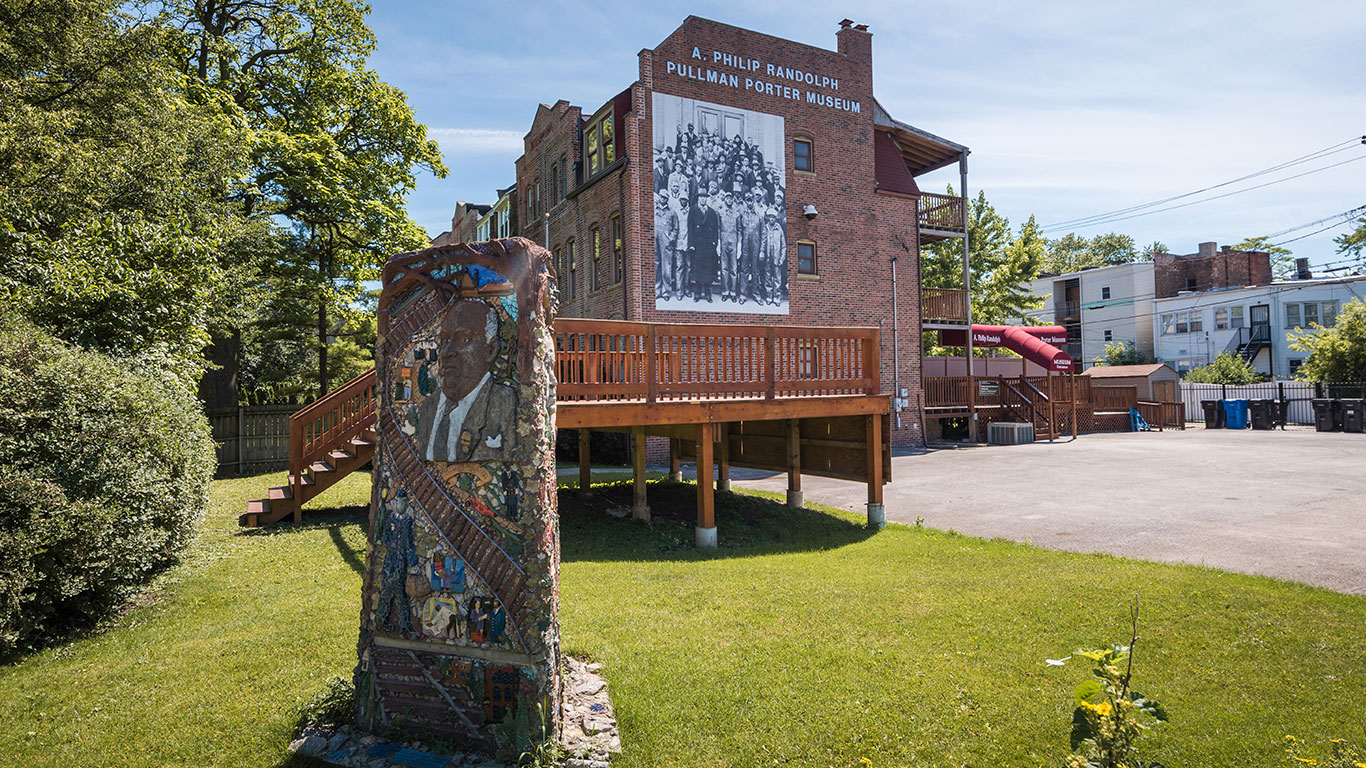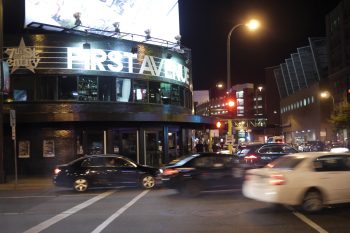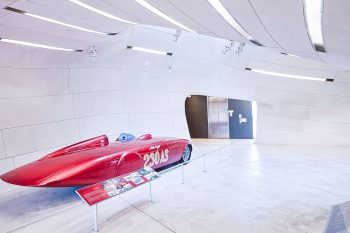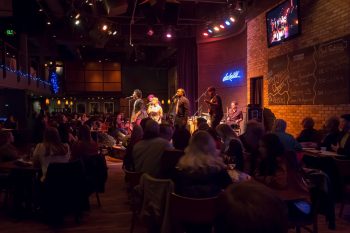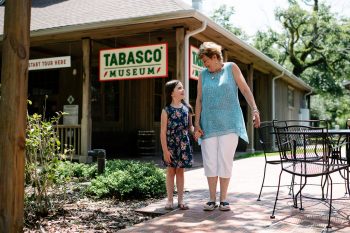Chicago’s South Side boasts an incredible range of black heritage sites.
It embodies the past, present, and future of African-Americans—a history of marginalization that has also yielded inspiring stories, broken barriers, and countless cultural achievements. My five destination recommendations are just a few of those that capture the resilience and spirit of the black experience.
I’ve organized these must-see sites in the same order as I visited them during a recent trip to the Pullman and Bronzeville neighborhoods with my friend Annie, who was excited to connect with the African-American heritage that has helped define Chicago and the U.S. You can make a day of it, like we did, or savor each attraction as a separate visit. All are just 20 to 50 minutes from downtown Chicago by car or public transit, though biking to and between the sites is a worthwhile South Side adventure unto itself.
Philip Randolph Pullman Porter Museum
Tucked away on a quiet corner at the north end of Pullman National Monument and historic district, six blocks away from the Monument’s Visitors Center, is one of Chicago’s hidden gems.
Don’t let the unassuming exterior of the A. Philip Randolph Pullman Porter Museum keep you from missing this black heritage treasure. Start with the outdoor sculpture by artist Rene Townsend. The 10-foot mosaic on the west side of the property offers a visually poetic perspective on railroad history, the black labor-union movement, and civil rights in the United States.
Creativity then sets the stage for transformation as you enter the museum’s interior. On any given day, you will be greeted by music that captures the essence of the Black Renaissance Era. (Annie and I heard the rich sounds of Dina Washington Project). History unfolds from there in this one-of-a-kind museum that shines a light on the African-Americans who moved men and women to action.
A video on the top floor introduces the moving cast of characters—from slaves to labor organizers to the porters and waiters who served Pullman railcar passengers. The museum is self-guided after that.
Artifacts, news stories, and images create what appears to be a new vignette of the African-American experience at each pivot.
The Pullman Porter Museum, while modest in size, is abundant with inspiration. “We hope for people to leave here as better versions of themselves,” says Executive Director David Petersen. “That is what our story does. It brings out the best in people.” I agree. Whether you are black, white, brown, or purple, this special place will make you stand tall and want to be more.
Along with the standing exhibits, the museum often hosts special events. Guests can meet the museum’s founder, Dr. Lyn Hughes, and other movers and shakers from the black community at the annual “Gentle Warrior” gala in February. There’s also “Juneteenth Cultural Collision” in June, and plenty of ongoing mobile programming, too.
Pearl’s Place
Continue nourishing your senses and spirit at Pearl’s Place. This Bronzeville institution offers some of the best Southern soul food around. Two friends who grew up together in the neighborhood run the restaurant, instilling it with a friendliness that’s deeply embedded in the community. And they sure know how to serve up a meal. Gumbo, shrimp, and cheesy grits. A legendary buffet serving breakfast, lunch, and dinner. All served with a smile amid a notable collection of prints by iconic artists such as Jacob Lawrence and Margaret Burroughs. Pearl’s website says, “Put on your ‘Sunday’s Best’ and we’ll serve you ours!” That’s more than just a line. Pearl’s Place represents the very best of Chicago’s African-American community.
Bronzeville Walk of Fame
Next, stroll down the Bronzeville Walk of Fame, where King Drive between 25th and 35th streets—a stately, tree-lined boulevard with grand homes from a bygone era—provides a pensive backdrop.
“Victory Monument” marks the south end of the Walk. This somber sculpture of granite and bronze memorializes the Illinois National Guard’s 8th Infantry Regiment, an all-black unit that served in World War I as part of the 370th U.S. Infantry.
Ninety-one bronze plaques then unfold along King Drive. Embedded on sidewalks, medians, and crosswalks, these markers stretch along 10 whole blocks. Civil rights activist Ida B. Wells, poet Gwendolyn Brooks, and astronaut Robert H. Lawrence, Jr., are among the Bronzeville residents celebrated here. The Walk shines a spotlight on African-American contributions to U.S. history, culture, science, and more, shaping a consortium of great black minds to rival the figures of the Harlem Renaissance.
Don’t miss Gregg LeFevre’s enormous, low-relief bronze map of Bronzeville fixed on the meridian sidewalk just north of 35th. It not only features a street grid but shows off some of Bronzeville’s unique vibe as well. “Monument to the Great Northern Migration” stands at the north end of the Walk and serves as a fitting bookend to the permanent outdoor exhibit.
Monument to the Great Northern Migration
Alison Saar’s “Monument to the Great Northern Migration” ignites the imagination. Her 15-foot bronze sculpture depicts a man waving with one hand and carrying a suitcase in the other. On sight alone, the figure conjures all kinds of questions: Is he leaving or arriving? Does his suitcase, bound shut with string, hold precious memories of a life left behind or the promise of a new future? And what’s with his suit, covered in a texture of what looks like feathers and which seems to extend through his feet and into the ground below? Cross the street just north to find a marker embedded in the sidewalk that illuminates Saar’s symbolic choices for this iconic sculpture about African-Americans who migrated to Chicago in the early 20th century in search of a better life.
Willie Dixon’s Blues Heaven Foundation, Inc.
A powerhouse end awaits your African-American heritage itinerary at 2120 South Michigan Avenue. Yes, that’s the address immortalized in a Rolling Stones song, which pays homage to the site that used to occupy this space: the legendary Chess Records label. This special place is lots of things at once: part time capsule, part museum, part photo gallery, part sculpture gallery, part performance venue, and 100% unforgettable.
Here the family of creative giant Willie Dixon share his genius and that of his incredible circle of fellow music legends. Willie Dixon’s Blues Heaven Foundation celebrates some of the most brilliant African-American artists from the world of blues, gospel, soul, R&B, and rock—plus a few cool guys and gals who weren’t black, too. Think Muddy Waters, Aretha Franklin, Howlin’ Wolf, Bo Diddley, Etta James, Keith Richards… the list goes on and on.
From the moment Annie and I walked in, the Blues Heaven folks enthrall us with stories, images, and—of course—music from the life of Dixon as well as some of his most colorful collaborators, colleagues, and friends. The $10 guided tour is worth every cent. I think it’s a must-do part of a Blues Heaven visit, especially learning about how much Dixon influenced the protection of artists’ rights.
Make time if you can for the Foundation’s “Willie Dixon’s Record Row Concert Series” in the outdoor Blues Garden—Thursday evenings in June through mid-September.
That was the end of our tour, but there is so much more African-American heritage to explore on Chicago’s South Side. Consider the Black Metropolis Great Migration Pullman Porter Blues Tour or Gallery Guichard Trolley Tour for a guided excursion. Whatever your itinerary ends up being, an impressive imprint of culture and inspiration awaits.
Special thanks to Dr. Lyn Hughes and Harold Lucas for their input and support.
